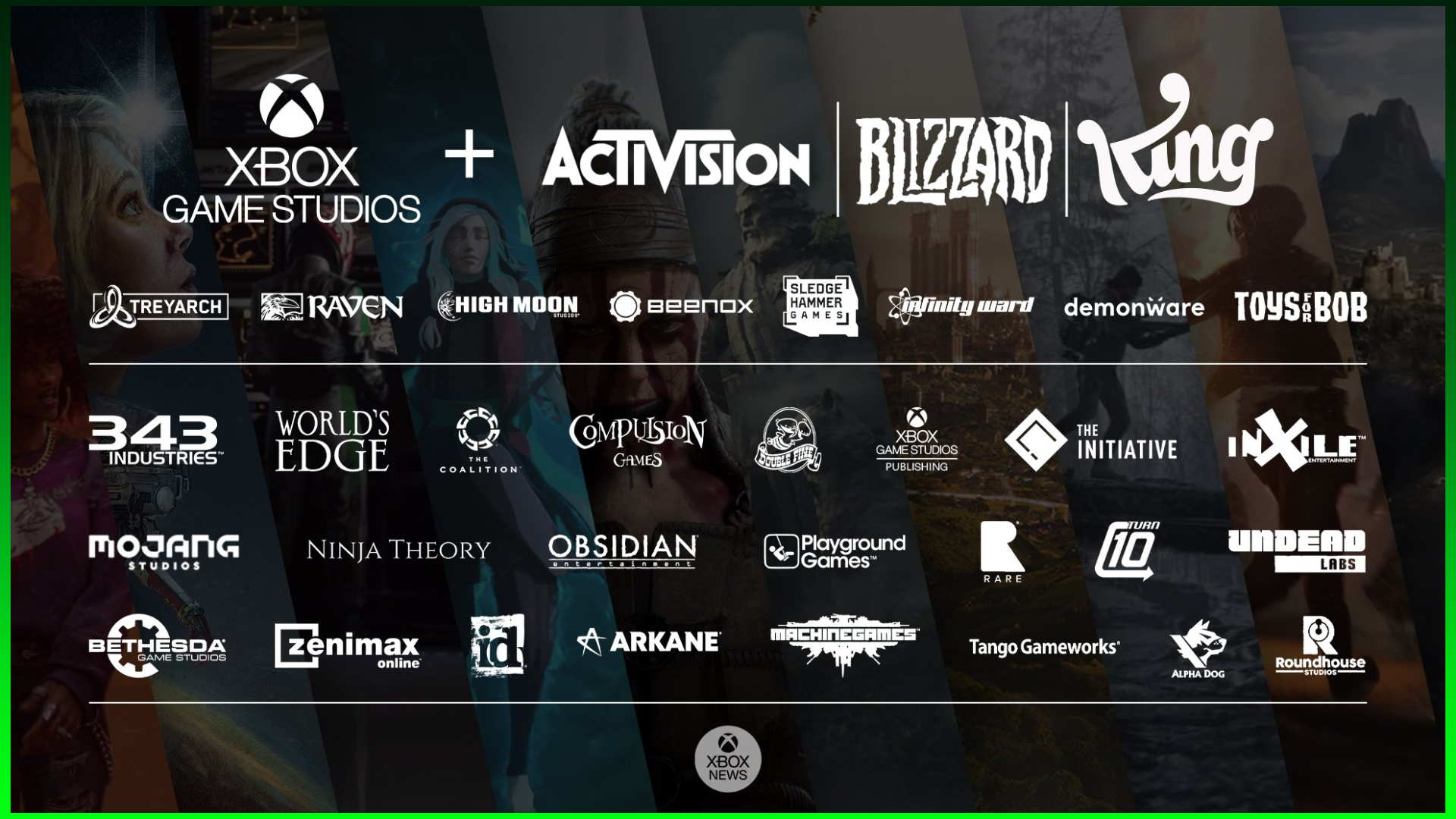As expected, Tuesday was Day 3 and more focus on the economics effect on both the scenarios regarding Activision Blizzard becoming a member of Xbox Game Studios if Microsoft is allowed to buy it.
The day started with a pre-recorded deposition by Sony Interactive Entertainment, Jim Ryan as he is spent early this week in Japan, reportedly visiting some key Playstation partners including Hideo Kojima and Kojima Productions.
Very much the same thing we have been hearing form Ryan, that Playstation will bar Microsoft with getting PS6 details/dev kits if the FTC fails on avoiding the Activision Blizzard acquisition and it was an email from Phil Spencer in August 2022, the moment he knew things will not go well for Playstation if the transaction closes
In some contradiction, he acknowledged that was convinced that it was King and mobile studios the main target of the purchase in a meeting with Fidelity Investment, but at the same time, he was wary of Xbox Game Pass business model claiming publisher are not sold AND ALSO, in the same meeting he said he was confident that the buyout wasn't about Call Of Duty.
In the video it was revealed that Jim Ryan did call Activision Blizzard CEO Bobby Kotick to express his desire for the transaction to be blocked.
Finally and an important highlight, Ryan claims that Playstation 5 lost against Xbox Series X in the first month of each respective consoles becoming available in late 2020.
On his part, FTC had Economics Expert Dr. Robin Lee as a witness and basically he tried to set the market definition of Xbox Series S / X and PS5 consoles as “high performance” BUT, included Nintendo Switch where FTC wanted NOT to count Nintendo at ANYTHING.
At counter-questioning, Microsoft legal team brought a document were Sony sees Nintendo as competitor, but it seems that FTC prepared Dr. Lee as he was very evasive on not sounding contradicting and describing an scenario where COD is not available on Nintendo and other assumptions, Xbox would increase its share on Call Of Duty by 8.5%.
Questioned about Microsoft’s own analysis on Activision games and which doesn’t justify withholding games, Dr. Lee said that for consoles recommended not exclusive, but for subscription services they recommended exclusivity, which Microsoft pointed out that Dr. Lee did not benchmarked a subscription model.
Microsoft brought the CMA results which justified their rejection of the UK allowing the Activision Blizzard acquisition and when asked Dr. Lee, if he had benchmarked that math used on their report, Lee admitted he hasn’t seen the CMA report which basically locks him in being unable to answer further questions regarding the CMA.
In a good counterpoint against FTC and using Sony as “victim”, Dr. Lee admits that exclusivity can have “both pro and anti-competitive effects.” after Microsofto asserted that Dr. Lee did indeed have read about Microsoft’s 10-year agreement of Activision games with competition and a direct comparison with Final Fantasy XVI which looks like it will release first on PC but not on Xbox.
A definite blow came not from Microsoft legal team, but the same Judge where a clear question was demanded as Dr. Lee clearly did not have one and it is about where it is possible that Playstation could lose Call Of Duty in the future.
Dr Lee then responded that it’s likely that Activision content will be foreclosed, but he can’t say whether Call of Duty is likely to be withdrawn from PlayStation.
Afterwards there was a back and forth until Judge Corley intervened again: “There are a lot of popular games, not just Activision. And there’s no way of predicting what’s going to be the most popular game.”
Judge Corley wanted to know why Dr. Lee hasn’t analyzed Call of Duty separately. Dr. Lee says Microsoft was likely to foreclose Call of Duty and other Activision titles.
FTC unable to hold the complete narrative, pressured on a partial foreclosure of games scenario which basically Dr. Lee pressed again that yes, it can have both pro and anti-competitive effects.
Nintendo as a variable was brought in again and in the context of Xbox Series S being closet on price and Dr. Lee argues that he models and provides evidence that around 10-15 percent of folk who leave an Xbox would to go PlayStation or vice versa and that a “hypothetical monopolist... would find a five percent price increase, likely profitable.”
This was in terms of price hiking due mergers.
And again, acknowledged that there was not enough data to compare console and gaming subscriptions as if they are at the same time susceptible for foreclosure in case of a merger and again the judge tried to get a clear answer.
In summary, Dr. Lee appeared more unprepared than expected and/or FTC did a horrible job on making their homework and having him be able to answer hard questions and yeah, one can think he is not a gamer, but he did seem that he does not need to know “gaming” to really benchmark a market.
Before heading to Nvidia’s deposition, I want to keep focusing on economics as Microsoft brought its own economics expert, Dr. Elizabeth Bailey, an economics expert at Charles River Associates.
In a big contrast form Dr. Lee, r. Bailey says “Call of Duty is not essential, critical, or must-have. It’s not a unicorn.”
This is because as per Dr. Bailey, gamers play plenty of other games. Dr. Bailey says there are a “good percentage of gamers” who are playing more than 10 franchises on PlayStation.
Also, markets are “too narrow” and that the merger will expand the reach of content.
Maybe because it was truly backed by Microsoft, Dr. Bailey benchmarked the market as:
- Nintendo 18.5%
- EA 16.1%
- Take Two 8.4%
- Sony 7.5%
- Activision 7.4%
- Epic Games 6.1%
- Ubisoft 5.1%
- Xbox 4.9%
- Bandai Namco 3.5%
“Mobile is the largest, it’s about 70 percent” of the overall $150 billion gaming market. PC gaming is around $33 billion, console gaming at $28 billion. Xbox is “less than half a percent of mobile gaming revenue.
Activision Blizzard is also very small in mobile gaming. So combined, they’ll have 3.8 percent of mobile gaming.”
Dr. Bailey acknowledged that she has been given access to key telemetry data from both PlayStation and Xbox for Call of Duty.
Microsoft argues that data for market share and usage shouldn’t be limited to just the US and that it should be global.
“It reinforces that nexus of competition and competitive decisions are made not global, nor local or limited to the United States”
Dr. Bailey was able to analyze game time to determine if the same games are popular in the US and other parts of the world. “If you look at the most highly played games, that set of games that are most highly played in the US is a very similar set to the most highly played games in other countries around the world,” says Dr. Bailey.
Dr. Bailey also confirms that Dr. Lee also had access to the same telemetry data.
Nvidia is generally happy with Xbox games available on GeForce Now
Now it will return to Nvidia who had GeForce Now Leader Phil Eisler, who testified before Dr. Bailey in a 9-minute long video and one big aspect of GeForce Now revealed as he said:
“We’ve found over time that we get closer and closer to the quality of playing locally. Our cloud gaming servers are more powerful than consoles, so we’re able to run higher frame rates and add more visual effects.”
Over the latency aspect of the service, Eisler said that one way is to improve the frame rate, GeForce Now increased fps from 30 to 60 and then 120 and up to 240.
I guess this was to question the viability of Cloud Gaming and co-related with the 10-year agreements that Microsoft has been inking with competitors.
GeForce Now is no stranger to Activision Blizzard games as we were reminded that during BETA, there were even some releases of Call Of Duty and ABK was originally disappointed when Nvidia surprisingly launched the service in 2020 without much before-hand announcement.
About the 10-year agreement signed this year (which already has some Xbox Game Studios games available:
“The agreement entitles us to the content provided the transaction completes on the Activision side. We have already begun working with Microsoft to onboard their first-party titles, so we’re confident that will solve our concerns there.”

